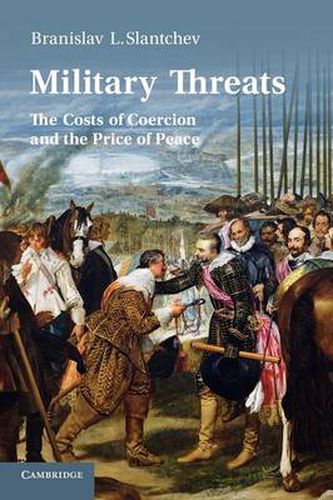Readings Newsletter
Become a Readings Member to make your shopping experience even easier.
Sign in or sign up for free!
You’re not far away from qualifying for FREE standard shipping within Australia
You’ve qualified for FREE standard shipping within Australia
The cart is loading…






Is military power central in determining which states get their voice heard? Must states run a high risk of war to communicate credible intent? In this book, Slantchev shows that states can often obtain concessions without incurring higher risks when they use military threats. Unlike diplomatic forms of communication, physical military moves improve a state’s expected performance in war. If the opponent believes the threat, it will be more likely to back down. Military moves are also inherently costly, so only resolved states are willing to pay these costs. Slantchev argues that powerful states can secure better peaceful outcomes and lower the risk of war, but the likelihood of war depends on the extent to which a state is prepared to use military threats to deter challenges to peace and compel concessions without fighting. The price of peace may therefore be large: states invest in military forces that are both costly and unused.
$9.00 standard shipping within Australia
FREE standard shipping within Australia for orders over $100.00
Express & International shipping calculated at checkout
Is military power central in determining which states get their voice heard? Must states run a high risk of war to communicate credible intent? In this book, Slantchev shows that states can often obtain concessions without incurring higher risks when they use military threats. Unlike diplomatic forms of communication, physical military moves improve a state’s expected performance in war. If the opponent believes the threat, it will be more likely to back down. Military moves are also inherently costly, so only resolved states are willing to pay these costs. Slantchev argues that powerful states can secure better peaceful outcomes and lower the risk of war, but the likelihood of war depends on the extent to which a state is prepared to use military threats to deter challenges to peace and compel concessions without fighting. The price of peace may therefore be large: states invest in military forces that are both costly and unused.